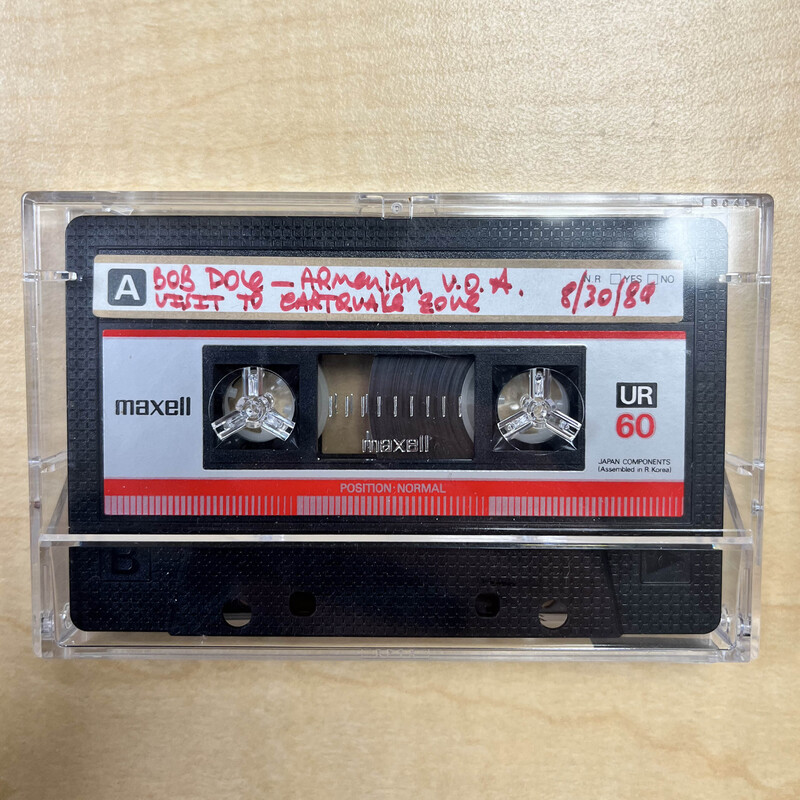Bob Dole - Armenian V.O.A. Visit to Earthquake Zone
Item
- Other Media
-
 c016_523_A.mp3
c016_523_A.mp3 -
 c016_523_A_tr.docx
c016_523_A_tr.docx -
 c016_523_A_tr.txt
c016_523_A_tr.txt - Extent (Dublin Core)
- 00:27:04
- File Name (Dublin Core)
- c016_523_a
- Title (Dublin Core)
- Bob Dole - Armenian V.O.A. Visit to Earthquake Zone
- Description (Dublin Core)
- Senator Bob Dole is interviewed by Voice of America after traveling with Elizabeth Dole to Morocco, Soviet Armenia, Poland, and the Netherlands. The purpose of the trip varied based on each region, but included: peace in Lebanon, the 1988 Armenian Earthquake relief efforts, Solidarity in Poland, and United States - Netherlands mutual investment interests.
- Date (Dublin Core)
- 1989-08-30
- Date Created (Dublin Core)
- 1989-08-30
- Congress (Dublin Core)
- 101st (1989-1991)
- Topics (Dublin Core)
- See all items with this valueEarthquake relief
- See all items with this valueInternational relations and culture
- See all items with this valueSolidarity
- See all items with this valueSoviet Union--Economic policy--1986-1991
- Creator (Dublin Core)
- Voice of America (Organization)
- Names (Dublin Core)
- See all items with this valueAmeriCares
- See all items with this valueBush, George, 1924-2018
- See all items with this valueDole, Robert J., 1923-2021
- See all items with this valueGlemp, Józef
- See all items with this valueGorbachev, Mikhail Sergeevich, 1931-2022
- See all items with this valueHassan II, King of Morocco, 1929-1999
- See all items with this valueMazowiecki, Tadeusz
- See all items with this valueSachs, Jeffrey
- See all items with this valueVazgen I, Catholicos of Armenia, 1908-1994
- See all items with this valueVoice of America (Organization)
- See all items with this valueWałęsa, Lech, 1943-
- See all items with this valueDole, Elizabeth Hanford
- Location representation (Dublin Core)
- See all items with this valueArmenia
- See all items with this valueBaltic Countries
- See all items with this valueGyumri
- See all items with this valueLebanon
- See all items with this valueMorocco
- See all items with this valueNetherlands
- See all items with this valuePoland
- See all items with this valueSpitak
- See all items with this valueYerevan
- Rights (Dublin Core)
- http://rightsstatements.org/vocab/CNE/1.0/
- Language (Dublin Core)
- eng
- Collection Finding Aid (Dublin Core)
- https://dolearchivecollections.ku.edu/index.php?p=collections/findingaid&id=50&q=
- Physical Collection (Dublin Core)
- Collection 016, Item 523, Cassette Side A
- Institution (Dublin Core)
- Robert J. Dole Institute of Politics, University of Kansas, Lawrence, KS
- Archival Collection (Dublin Core)
- Dole Audio Cassette Collection, 1966-1997
Position: 644 (41 views)


